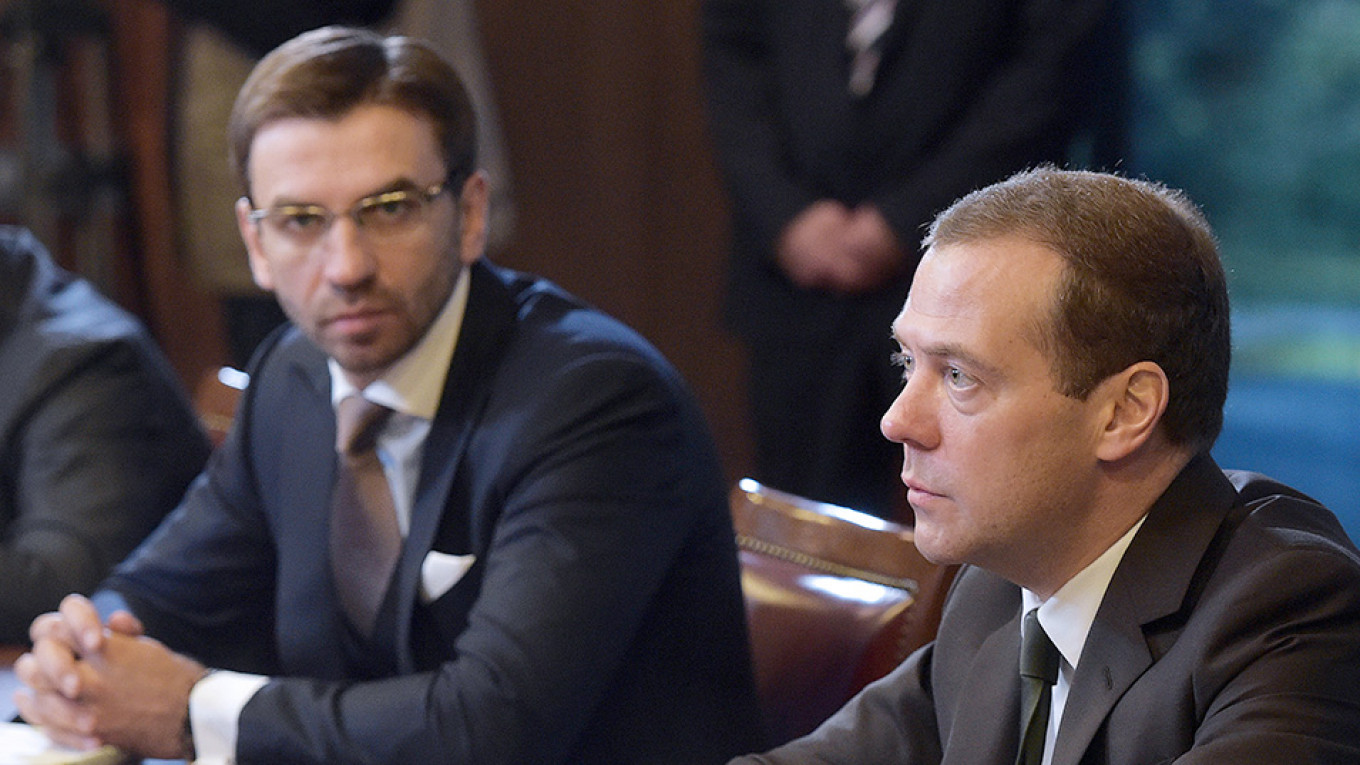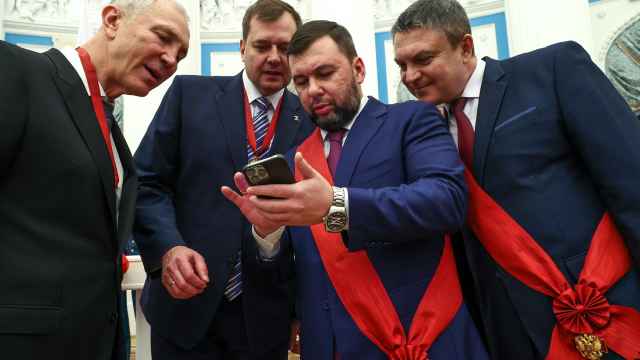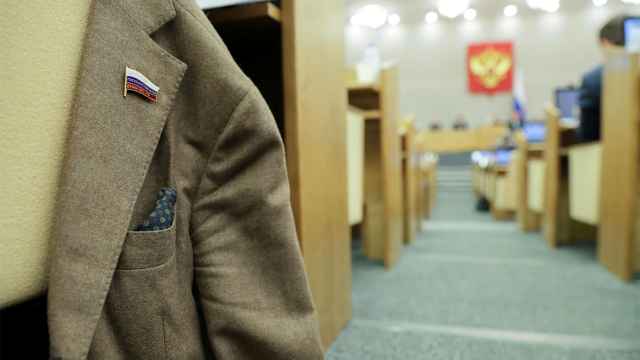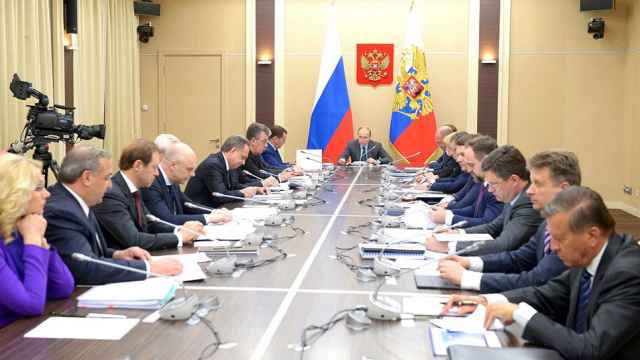How far will this whole thing go? Will masked men in camouflage burst into a government meeting in the White House and whisk away Prime Minister Dmitry Medvedev — slipping a bag over his head as a precaution?
And will First Deputy Prime Minister Anton Siluanov, after only a moment’s pause, simply assume Medvedev’s place and resume the meeting saying, “So, where were we?”
If that were to happen, it is not hard to imagine that the people who are still angry at Medvedev over revelations of his alleged embezzlement of public funds would celebrate his arrest on social networks, the usual commentators would fill the airwaves with their standard comments, and certain conspicuous persons would remain conspicuously silent.
What is difficult to imagine is that any prominent person would step forward shouting “Free Medvedev!” Even during his best years, he had very few backers. Now, he’s basically on his own.
Of course, Medvedev remains a free man, but this seemingly far-fetched scenario seems less absurd in light of recent events.
This is because the recent arrest and detention of his Deputy Prime Minister, Mikhail Abyzov — who served for six years in the cabinet — was also a very dark day for Medvedev himself.
Although Abyzov was never a member of Medvedev’s inner circle, when Federal Security Service operatives dragged him off to Lefortovo Prison, they were really ripping a page from Medvedev’s biography.
That biography is not so terribly long, of course, and this was not Page 1 of that epistle, but it did mark a chapter in Medvedev’s new life that began seven years ago.
Once it became clear that Medvedev would not serve a second term as president, the plan was for all of his modernization efforts in the late 2000s to shift to the government level once he resumed his premiership.
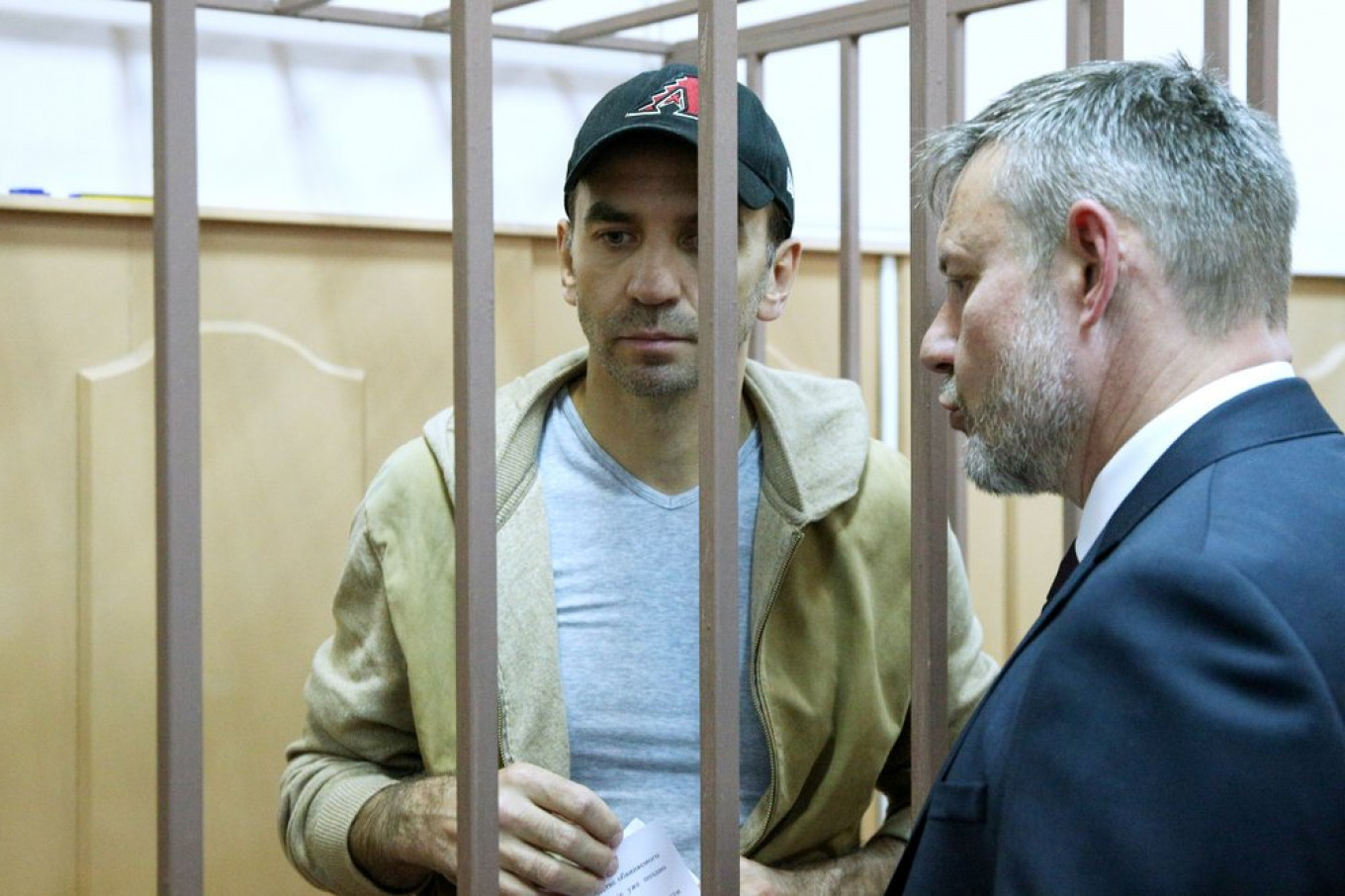
The Open Government Ministry — which Abyzov led — was the flagship initiative in that plan. Although it had only a vague practical purpose from the beginning, its political intent was clear: it would allow Medvedev, as Prime Minister, to redouble his experiments with civil society and implement them on a professional level, with the young and progressive businessman Mikhail Abyzov heading the effort.
That was the idea, at least. In practice, things turned out differently.
The prevailing atmosphere in Russia in the early 2010s was hardly conducive to Medvedev’s modernization game, and he very quickly ceased to be associated with anything other than drowsily attending public events with half-closed eyes.
His plans for infusing the premiership with new political substance had also faded away by 2012. Open Government never became a political reality, and the most anyone heard from Abyzov in recent years was that he had married a stewardess — who will now have to wait while he sits in prison.
Bad as it is, one can wait for a prison term to end. But there is no point in waiting for Medvedev to rise above his current condition: there’s no going back for him.
The man who served as the third President of Russia — who is, by the way, also still the chairman of the government —has existed in a complete political vacuum for who knows how many years now.
And there is no point waiting for “Medvedev’s men” — that handful of officials now serving in apolitical business posts with close ties to the state — to suddenly step forward and do anything either.
Another one of “Medvedev’s men” — former Deputy Prime Minister Arkady Dvorkovich — figures in the current news and leaks in about the same role that Igor Sechin played in the case of Alexei Ulyukayev.
Reports claim that it was Dvorkovich who lured Abyzov from abroad on the occasion of his birthday. Considering the “sense of humor” of Russian state security, it is safe to assume those leaks are unreliable and aimed at discrediting Dvorkovich.
But, even allowing for the unofficial nature of the allegation, this is an unprecedentedly serious charge with the potential to ruin Dvorkovich’s reputation — something for which he might still have use one day.
And even though the law of the jungle governs relations in modern Russia and nobody is obliged to do anything for anyone, it would be good if Dvorkovich explained the situation fully on his own behalf, and did not just issue a tersely-worded statement through an information agency.
If he considers it his duty to help Russian intelligence expose corrupt officials, let him say so. And if he has been slandered, well, all the more reason to talk.
The state’s habit of maintaining stony silence has always been malevolent, and in this situation, it is downright ominous. Still, the names of Dvorkovich and Abyzov — in contrast to those of Sechin and Ulyukayev — have always held equal status.
It is pointless, of course, to expect Medvedev to make any public moves. Instead, his press secretary, Oleg Osipov, issued a shameful statement to the effect that, since Abyzov is accused of crimes committed before he became Deputy Prime Minister, the government has no direct interest in the case.
The problem is that Osipov’s job, by its very nature, calls for him to throw out enough flak to keep undue attention away from his boss. And this is apparently part of the safety cushion that enables Medvedev to feel confident the men in masks won’t come for him, too. His tactic, it seems, is to keeps such a low profile that no one would have any reason to fire, imprison or replace him.
But if they did one day come for Medvedev, it would be our job to offer a word in his defense — otherwise, this country’s entire leadership would consist of nothing but hardliners.
Hang in there, Dmitry!
A Russian language version of this article was originally published in Republic.
A Message from The Moscow Times:
Dear readers,
We are facing unprecedented challenges. Russia's Prosecutor General's Office has designated The Moscow Times as an "undesirable" organization, criminalizing our work and putting our staff at risk of prosecution. This follows our earlier unjust labeling as a "foreign agent."
These actions are direct attempts to silence independent journalism in Russia. The authorities claim our work "discredits the decisions of the Russian leadership." We see things differently: we strive to provide accurate, unbiased reporting on Russia.
We, the journalists of The Moscow Times, refuse to be silenced. But to continue our work, we need your help.
Your support, no matter how small, makes a world of difference. If you can, please support us monthly starting from just $2. It's quick to set up, and every contribution makes a significant impact.
By supporting The Moscow Times, you're defending open, independent journalism in the face of repression. Thank you for standing with us.
Remind me later.



